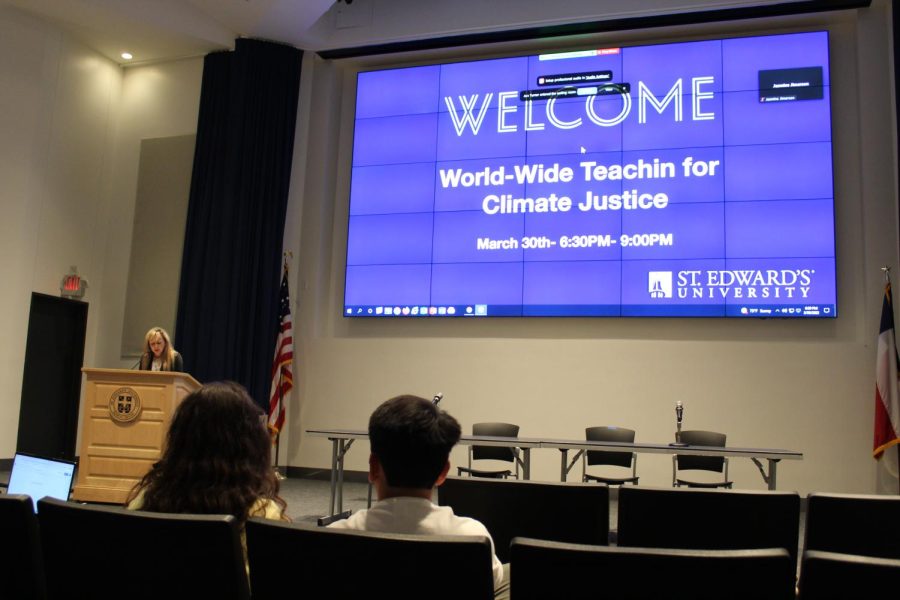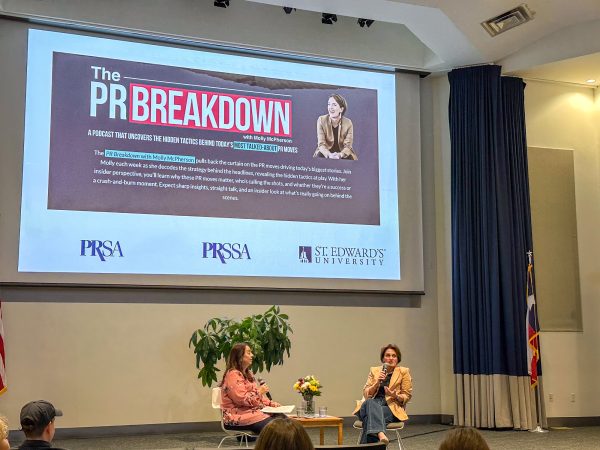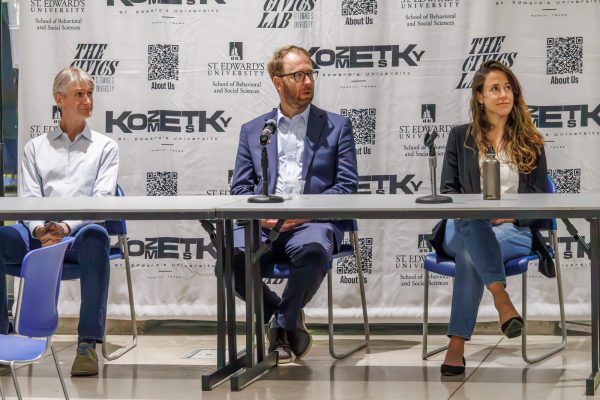TeachIn hosts panel to discuss climate change perspectives
The Climate Justice TeachIn took place last Wednesday and featured several panelists from faculty and staff. Both global and local strategies and concerns were discussed.
In response to an increasing discussion of climate considerations on college campuses, St. Edward’s University hosted a Climate Justice TeachIn on Wednesday, March 30. The event was held in Jones Auditorium and discussed impacts of and solutions to climate change on a global and local level.
The TeachIn featured four different sets of panelists composed of students, faculty and staff. Each used their role at St. Edward’s to give a unique perspective on how climate change is understood and can be addressed in their respective fields.
President Fuentes opened the TeachIn by stressing the importance of tackling environmental concerns at St. Edward’s. She also stated that there are a variety of considerations in Strategic Plan 2027, specifically in infrastructure and resources, aimed at making St. Edward’s a greener campus.
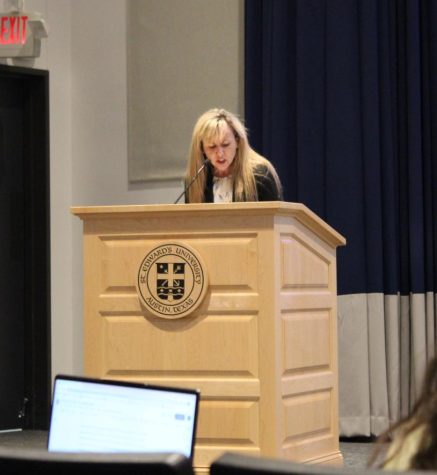
“As we think about our future, I want our main responsibility to be to respond to some of the injustices that we are challenged with right now,” Fuentes said. “Addressing injustices in the context of climate and environment is certainly a priority for us.”
The panelists echoed these sentiments. While the TeachIn was an international event and touched on the global impacts of climate change, the speakers also emphasized what St. Edward’s and the student body can do on a smaller-scale to create change. Panelists recognized that this issue is often portrayed with a ‘gloom and doom’ mindset and that the sheer magnitude of the problem can make it feel unsolvable. However, focusing on individual changes that students can make framed the conversation as a difficult, but simultaneously, hopeful one.
Despina Tsacalis, a student panelist and leader of the St. Edward’s University’s Civics Lab, drove home the idea that it was within our power to take meaningful action.
“I really appreciate how the university is able to consistently give students a platform and a voice just as much as they do faculty and administration,” Tsacalis said. “It reminded me that as good as it was to speak and to hear everybody speak, we also need to take this event as a friendly reminder that actions always speak louder than words.”
At the heart of the changes panelists discussed was a call for involvement. By joining organizations like Students for Sustainability or participating in events like the upcoming Earth Day Fair, students have a chance to collaborate with like-minded peers, educate themselves on sustainable lifestyle changes and equip themselves with tools to educate others. This was the core message of the night: by collaborating with others, we can push for change in our direct surroundings and in public policy, which panelists agreed was the biggest obstacle at a state and national level.
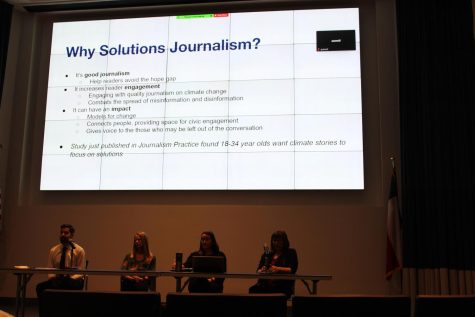
The panelists also made it clear that responding to climate change is not something limited by one’s field of study. It is not essential to be an environmental policy student to affect change. Instead, one of the largest takeaways of the panel was that climate change will best be solved with cross-disciplinary action.
“There’s something about being in the room with these diverse folks – the students, the faculty from different disciplines – that is really exciting,” chair of visual studies Hollis Hammonds, a panelist speaker, said. “I think all of these backgrounds are what will lead to new collaborations to address the problem.”


